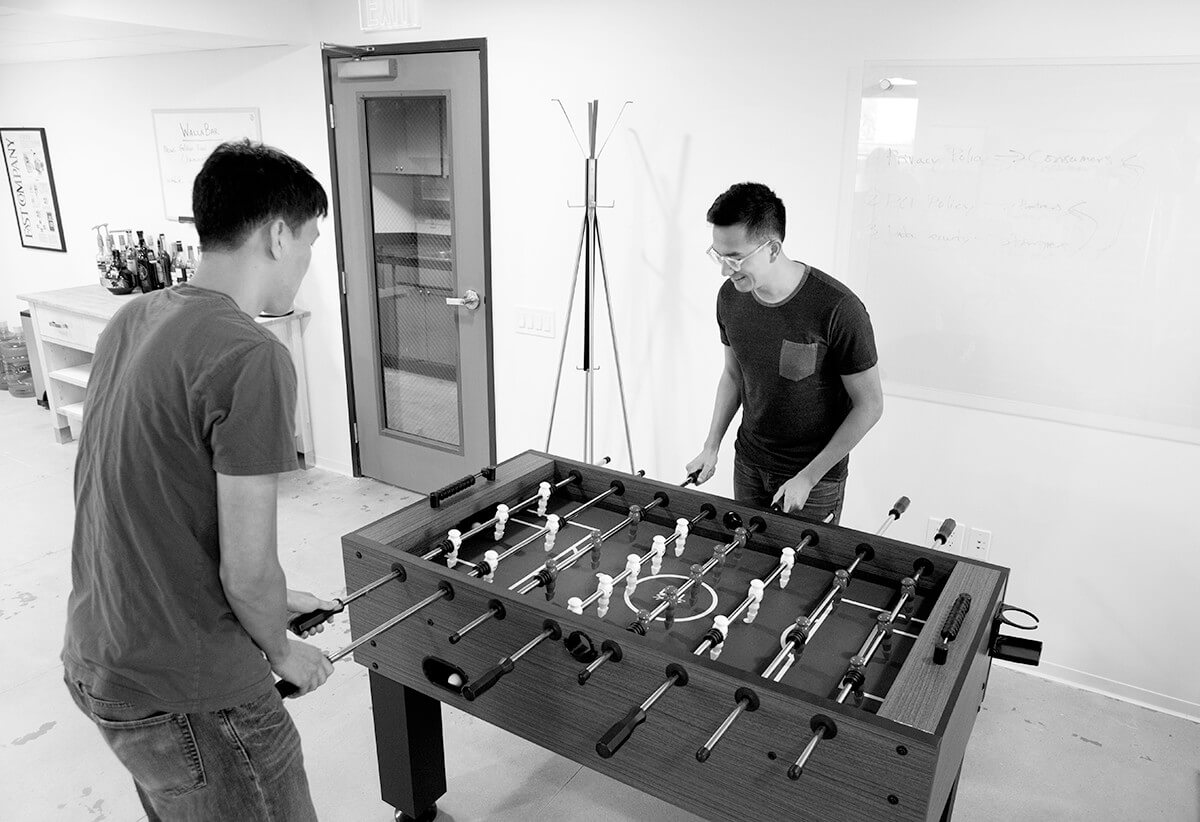My Zero-Turnover Team

Originally posted at Innovate Pasadena
A lot has been written about company culture. Many entrepreneurs love to coin sayings, write a mission, value statements, and the like and post it on the walls of their freshly minted offices.
If we had a saying at Wallaby (which we don’t) it would probably be “show, don’t tell.” We have an amazing culture and we know it because in our almost four-year history we have zero turnover. When we tell people this, they usually can’t believe it. It’s true though, everyone we have ever hired for a full-time position is with us today. No one has resigned, been laid-off, or flat-out terminated. Sure, we have had a few interns and short-term contractors come and go, but our regular employees are a solid crew.
So how did we get here? We practice a few keys things. Ten things, to be exact. For the first time, we’ll actually write it down (and maybe I’ll tape this to the wall):
-
Hire slowly.
I’ve written about this before, but because we are very considerate about every hire we make we create a culture of cohesion and dependence. People know that the person next to them will be there next week, next month and next year.
-
Be flexible.
We have had people come on board and then have to move within 3-12 months. It’s not ideal, but everyone’s life has its complications. We could tell them to leave their keys on the way out, but instead we find a way to solve it.
-
Communicate all of the time.
We have daily company-wide stand-ups (10 minute meetings to update every one on what’s going on). We are on Slack all of the time. We have video conferencing setup. We use Screenhero to talk and share screens. We are always talking (or typing).
-
Set clear priorities.
Uncertainty sucks. Startups breed uncertainty. We solve this conundrum by running the entire company off of a prioritized project list and two-week agile software sprint process. Every two weeks we discuss what’s the most important stuff. Yes, it can change (and does), but there isn’t confusion.
-
Make quick decisions.
We don’t deliberate for weeks. If there is a problem or something to figure out, we get together right away, talk about it (see #3) and come to a decision. Then move forward.
-
Make the office pleasant.
We have the usual trappings of a startup. Free coffee and snacks. Foosball. All the logo t-shirts you want. More than that the office is a nice place to be—a nice facility with windows, good equipment, etc.
-
Don’t make the office your family.
People burn-out. Work is a place where one spends a lot of their time. We don’t want our employees to have to spend all of their time with us. Go home. See the family. See friends. Jump online from home, if need be, to work late. Take a break.
-
Celebrate success!
Every other week we celebrate what we have built. We share demos of what software and tools we’ve put together, we have a few drinks and we enjoy ourselves. Even in the midst of a crunch there is time to enjoy what we’ve completed.
-
Acknowledge mistakes, especially at the top.
I’m a Harry Truman fan—the buck stops at the top. If things are going poorly, it is my fault and I acknowledge it to the team. I talk to them about how to right things. Being open and honest helps to patch the holes rapidly.
- Encourage autonomy.
I hate micromanagement. I try to pose questions and an ideal ending position to my team, but I let them figure out how to get there. Remember that you hired an employee for their particular set of skills so let them demonstrate their expertise. If you don’t give them room to fail, you don’t give them room to succeed either.
I am grateful to my team for their loyalty and I try to earn and respect it every day.

